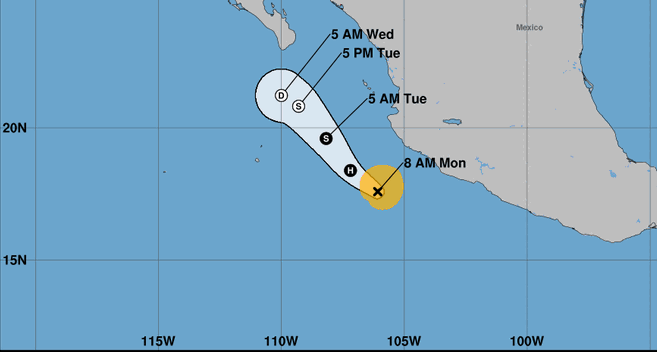Life is not a linear journey; it comes with its challenges – its ups and downs. One of the most overlooked and neglected life challenges is mental health. Mental health challenges affect your thinking, emotional, and behavioral patterns, and can even bring down your quality of life. However, mental health conditions can be treated. With expert care, you can gain the tools and skills to overcome your challenges in a safe and supportive setting.
Taking the first step toward recovery can be challenging, but it is brave. In this journey, it is best to be equipped with information regarding the several care options available to you. Two of the options we will be exploring in this article are partial hospitalization programs (PHPs) and intensive outpatient programs (IOPs) for mental health.
Overview of Mental Health Care
Your mental health concerns can have an adverse impact on your daily life, relationships, and overall well-being. Therefore, caring for your mental health becomes crucial to thrive in your life. Holistic and personalized mental health care allows you to:
- Gain an insight into the obstacles in your life.
- Tackle challenging thoughts and emotions in a safe, non-judgmental environment.
- Gain tools and skills to deal with self-defeating thoughts and behaviors.
- Use long-term strategies to prevent future disruptions and conflicts.
- Boost empathy and understanding, and build strong interpersonal relationships.
- Journey toward a life of meaning and fulfillment.
As mental health has improved by leaps and bounds in recent years, given the advancements in science and technology, mental health care has also become diverse and effortless. Gone are the days when mental health care meant isolating yourself in a scary place. Now, mental health care has become flexible to the point where it can even be treated in outpatient settings.
What are PHP and IOP?
Partial hospitalization programs (PHPs) and intensive outpatient programs (IOPs) are comprehensive outpatient programs for mental health. Both offer intensive care and structure involving therapy, medical monitoring, social support, and aftercare services for an enduring recovery.
PHP is ideal when you require more intensive care than what traditional outpatient therapy provides, but do not require round-the-clock supervision. PHPs run for up to 8 hours per day and 5 days a week. The goal is to provide a structured environment that promotes stability, laying a strong foundation for your recovery while also allowing you to return home each night.
An IOP is not as intensive as a PHP, but it still provides intensive structure and care for up to 5 hours a day and 3 days a week. The goal is to receive mental health care while also maintaining your daily life. IOP is ideal for those who have already completed a higher level of care and need more support as they transition to daily life.
How do PHP and IOP Support Mental Health Recovery?
The best thing about PHP and IOP is that they do not exist in a vacuum. They are combined together, as many start in PHP and gradually transition to IOP for lasting stability and independence. This is known as a step-down approach, which ensures the support you receive meets you where you are in your recovery. Here is an overview of how PHP and IOP can support your wholesome mental health recovery:
- You receive a continuum of care services in one program, so you do not have to enroll in different programs to receive the benefits of each.
- Your care plans are tailored to your needs and goals; you will be an equal partner in your recovery as you will collaborate with mental health practitioners to create a personalized care plan.
- As your condition begins to stabilize, you move from PHP to IOP to maintain continuity of care without any disruptions.
- A step-down approach to your care ensures lasting recovery and minimizes any chances of a relapse.
- As you move gradually to step-down levels in your care, it encourages your independence. While PHP is more intensive, IOP is not as restrictive, allowing you to smoothly transition back to daily life.
Who Can Benefit from PHP and IOP?
Anybody who is struggling with mental health disorders or other challenges to the point that they are hindering their daily life and functioning can benefit from PHP and IOP. In fact, PHP and IOP can also treat co-occurring mental health conditions and substance use disorders together. Both of these programs are provided in an outpatient setting, so ideally, they are for those who do not require round-the-clock supervision or overnight hospital stays but need more support than weekly outpatient therapy sessions can provide. At the same time, your preference for flexibility, the time you can afford, and your finances will also be taken into consideration.
Both PHP and IOP provide a range of services from individual therapy, group therapy, medication management, social support, and aftercare to case management. These services can be beneficial as stand-alone options or even for those who are transitioning from higher levels of care, like residential treatment.
How to Choose the Right Program?
Choosing between PHP and IOP can feel like an uphill task. So, we suggest you consult with licensed mental health practitioners who will perform comprehensive psychiatric evaluations for an accurate diagnosis to assess the kind of care you need.
Depending on the severity of your condition, you will be referred to a PHP or an IOP. However, for more severe conditions needing round-the-clock medical and psychiatric supervision, you may even be referred to residential treatment.
PHP and IOP are at their most effective when you have a loving, supportive environment to go back to – it can be your home or a sober living residence. At the same time, since they do not require overnight hospital stays, they are also more cost-effective options and bring you affordable yet holistic care.
Final Reflections
Healing begins with one decision – to get better. There is strength in this decision. While you may feel like you have to put your life on hold to receive the care you need and deserve, the mental health field has expanded to the point that there are more flexible options now than there were in the past.
Partial hospitalization programs and intensive outpatient programs treat mental health disorders and challenges in outpatient settings. They are built around your life, and mental health care can seamlessly and effortlessly fit into your life. PHP and IOP provide care that meets where you are in your recovery so that it is relevant to you wherever you are and you do not feel overwhelmed or isolated anytime during your healing journey.
Additional Contributor

Dr. Ryan Peterson is a board-certified physician specializing in pain management and addiction medicine. With personal experience in recovery, he is dedicated to helping patients overcome substance use and manage pain with compassionate, personalized care.


















